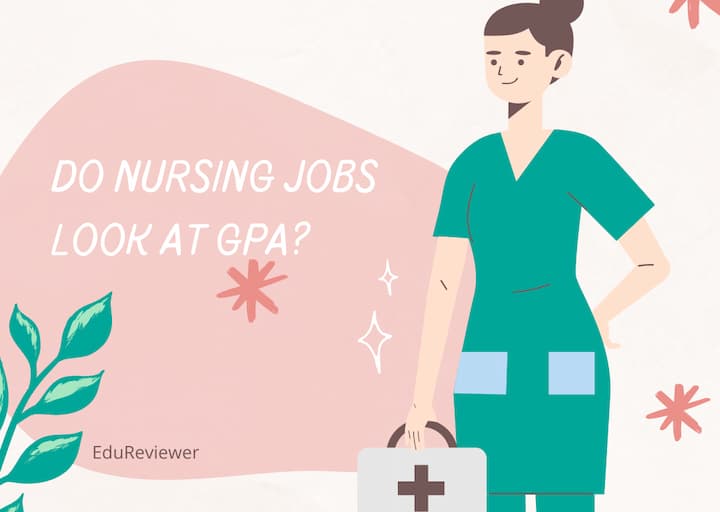Graduating from college is an exciting milestone. It marks the culmination of years of hard work and countless assignments. As you bid farewell to your alma mater, a new chapter of your life begins to unfold.
While the future may seem filled with possibilities, prepare to think about your post-college career as soon as possible. If you are at the start of your study journey, don’t forget to check out our article on the worst colleges in America and avoid them by all means.
We will explore the various factors that influence when you should start thinking about your post-college career. We will guide you to make the most of your time in college.
Get ready to pave the way for a fulfilling and rewarding future! Remember, your post-college career is not a distant destination—it is a destination that begins with the choices you make today.
Should You Get Ready for a Career Post-College?
As the thrill of graduation settles in, you might ponder whether it’s necessary to prepare for a job and when you should begin thinking about your post-college career.
After all, you’ve spent the past few years immersed in coursework and exams. Shouldn’t you take a breather and enjoy the freedom before diving into the job search? Yes, taking time to celebrate your achievements is essential.
Yet, there are compelling reasons why getting ready for your career post-college is wise.
- Competitive Advantage. In today’s job market, standing out from the crowd is essential. Employers are looking for candidates with initiative and a commitment to professional growth. Developing relevant skills and gaining valuable experience make you a desirable candidate.
- Industry Awareness. The world is evolving, and industries are changing. Staying informed about the latest trends gives you an edge in career planning. This proactive approach ensures that you are well-prepared to meet the demands of your field.
- Professional Development. The transition from college to the professional world can be challenging. By getting ready for your career, you can focus on your personal development. Seek workshops, online courses, or certifications that enhance your skills and knowledge. Take advantage of career resources in your college: resume workshops, networking events, etc.
- Networking Opportunities. They say, “It’s not just what you know, but who you know.” Building a strong professional network is invaluable. Starting early allows you to cultivate relationships with professionals in your field. Attend career fairs, industry conferences, and networking events to establish connections. The latter can open doors to future career prospects.
- Maximizing Internships and Job Search. Internships provide invaluable hands-on experience and a glimpse into the professional world. Many of such opportunities have competitive application processes, so starting early gives you an advantage.
Embrace the exciting journey ahead! Seize the opportunity to get ready for the career that awaits you after college! If you are unsure what to do after dropping out of college, check out our comprehensive guide with tips and advice that you may find helpful.
What Should I Know About a Post-College Career?
Embarking on your post-college career is a significant step. It’s filled with excitement, anticipation, and a touch of apprehension. It’s a time of transition as you navigate the professional landscape and carve out your path. To make the most of this pivotal phase, several aspects of your post-college career must be considered.
Career Clarity
While feeling uncertain about your career is natural, gaining clarity is essential. Take the time to reflect on your passions, interests, and strengths. Explore different industries, job roles, and career paths. Aligning your values with potential choices helps you make informed decisions.
Skill Development
It’s crucial to assess and enhance your skill set. Identify the talents in high demand and seek opportunities to develop them. It could involve taking extra courses, pursuing certifications, or participating in relevant projects. Emphasize technical and soft skills, such as communication, teamwork, problem-solving, and adaptability. Employers across industries value them.
Professional Networking
Building a solid professional network can open doors to various opportunities. Start by leveraging your existing network of professors, alumni, and classmates. Attend industry events and engage with online communities.
Resume and Cover Letter
Crafting a compelling resume and cover letter is vital when applying for jobs. Tailor your application materials to highlight relevant experiences, skills, and achievements. Look for internships, part-time jobs, volunteer work, or leadership roles. They usually prove your capabilities and show your commitment to professional growth.
Seek feedback from career counselors or mentors. It is to ensure your documents stand out from the competition. For the best cover letter writing services, check out the recent article in our blog.
Job Search Strategies
Conducting an effective job search requires strategy and persistence. Use online job boards, professional networking platforms, and company websites for this.
Leverage your network to uncover hidden job openings or gain referrals.
Additionally, consider contacting companies, even if they are not actively hiring.
Professional Growth and Adaptability
The world of work is ever-evolving. Continuous learning and adaptability are essential for long-term career success. Embrace a growth mindset and seek opportunities for professional development throughout your career.
Stay up-to-date with industry trends, technological advancements, and changing job market demands. Be open to new experiences. Take on challenging projects and be willing to step outside your comfort zone!
Work-Life Balance
Achieving a healthy work-life balance is crucial for your well-being and career longevity. Focus on self-care and maintain hobbies and interests outside work. Establish boundaries to prevent burnout.
Strive for a fulfilling career that aligns with your values. It should allow you to maintain a sense of equilibrium between your personal and professional lives.
Entering the post-college career phase can be both thrilling and daunting. Understanding these aspects can help you navigate this transition with confidence and purpose.
Remember, your post-college career is a journey of growth, exploration, and continuous learning.
When Should You Think About Your Post-College Career?
In today’s job market, landing a fulfilling career requires more than a degree. Employers seek candidates with skills, experience, and a clear sense of direction. Waiting until the last semester to contemplate your career path could leave you feeling unprepared.
The question of when you should begin thinking about your post-college career does not have a one-size-fits-all answer. It’s a personal decision that varies based on individual circumstances, goals, and aspirations.
Some students enter college with a clear vision of their desired career. Others may be uncertain about their future and prefer to explore different fields.
You can even think at some point that college is not for you… To make an informed decision, check out our article that revolves around this idea.
Recognizing that the transition from college to the professional world needs preparation is crucial. Early career exploration helps you discover your passions and strengths. Besides, it allows you to gain relevant experience and build a network.
You can also develop the skills that will set you apart from the competition.
Tools and Services to Support Your Post-College Career Journey
Various tools assist you in enhancing your professional profile. However, you should also check out our list of the most expensive colleges in America. They are logically the best in terms of education, opportunities and networking, and they are definitely a great starting point. Here are some other valuable resources to help you make an informed transition.
- Professional Resume Services.
Crafting a compelling resume that highlights your qualifications is crucial. Services like Zipjob and TopResume offer professional CV writing and improvement. It is to ensure that your resume stands out to potential employers. These services provide expert guidance on formatting and keyword optimization.
Online builders like Resume.io provide templates and tools. It is to create appealing and well-structured resumes. These platforms offer customizable options and pre-written content suggestions. This way, it is easier to showcase your skills and achievements.
- Online Learning Platforms.
Upskilling and continuous learning are essential for career growth. Online learning platforms like Udemy and Coursera offer courses and certifications.
Want to deepen your knowledge in a specific industry, get new technical skills, or develop soft skills? These platforms provide accessible and flexible options. Completing relevant online courses can enhance your resume.
It is to prove your commitment to professional development. This way, you will become more competitive in the job market.
- Professional Networking Platforms.
Building and nurturing your professional network is crucial for career advancement. Platforms like LinkedIn serve as virtual hubs for professionals. It enables you to connect with colleagues, industry experts, and mentors. Leverage LinkedIn to showcase your skills and experiences.
Join relevant groups and engage in conversations in your field of interest. Participating in networking platforms can lead to valuable connections.
- Career Counseling Services.
Seeking guidance from career counselors or coaches can provide valuable insights. These professionals can help you clarify your career direction and assess your strengths to develop a strategic plan.
They can also offer valuable feedback on your resume, cover letter, and interview preparation. It is to help you present yourself to potential employers.
Use online job search platforms like Indeed, Glassdoor, ZipRecruiter or LinkedIn Jobs. It can streamline your job search process. These platforms aggregate job listings from various companies and industries. It allows you to apply for positions that align with your interests.
You can set up email alerts to receive notifications about new job postings. You can save preferred job listings and track your application progress.
These tools and services enhance your career prospects. It’s essential to leverage them and combine them with your research. The combination of your unique skills and dedication will contribute to your success.
Taking Action: Initiating Your Post-College Career Journey
Navigating your post-college career journey requires planning, proactive preparation, and leveraging valuable resources.
Here are the key takeaways to remember as you embark on this exciting phase of your life.
- Begin thinking about your post-college career early to gea competitive advantage.
- Reflect on your passions and strengths to gain clarity about your career direction.
- Develop your skills by pursuing extra courses, certifications, and relevant projects.
- Join professional organizations and engage with online communities to expand your network.
- Tailor your resume and cover letter to highlight relevant experiences, skills, and achievements.
- Take advantage of online learning platforms to stay updated with industry trends.
- Explore online job search platforms to find job opportunities.
- Seek guidance from career counselors who can provide personalized post-college career advice.
Remember that this journey is unique to you. Combining your strengths and resources will pave the way for a rewarding career path.
FAQ
When Should I Start Thinking About My Career?
It’s never too early to start thinking about your career. You should begin considering your career path during your college years. It is to gain a competitive advantage. This way, you can start building relevant skills and experiences.
How Do I Start Thinking About My Career?
Start by reflecting on your passions, interests, and strengths. Research different industries and job roles. Talk to professionals in fields of interest and seek internships or part-time jobs. It is to gain hands-on experience and explore potential career paths.
Is It Normal to Not Know What to Do After College?
Yes, it’s normal to feel uncertain about your post-college career. Many graduates face this uncertainty. Take time to explore different options and engage in internships or networking opportunities. This way, you will discover your interests and passions.
How Important Is Your First Job?
Your first job is essential, as it sets the foundation for your career. It provides valuable experience and helps build your professional network. Yet, career paths are often nonlinear. And your next job can contribute significantly to your growth and success too.





